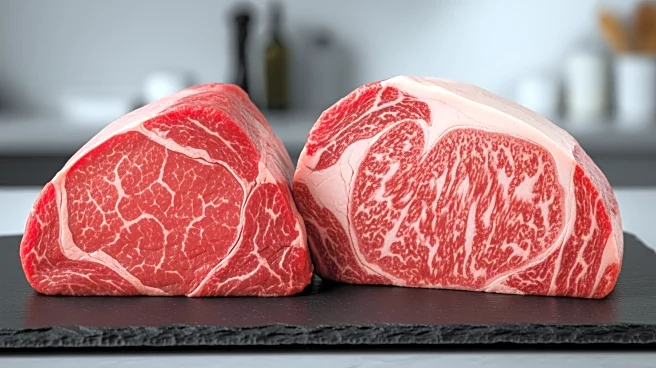Rapid Read • 8 min read
During a summit in Beijing, the European Union and China issued a joint statement emphasizing their commitment to climate change action. Despite tensions over trade and geopolitical issues, both parties reaffirmed their support for the Paris Climate Agreement and called for increased emission cuts and the adoption of green technology. The summit, initially planned for two days, was reduced to one due to low expectations of resolving key issues such as trade imbalances and the Ukraine conflict. European leaders, including European Commission President Ursula von der Leyen, stressed the need for a balanced relationship with China, highlighting the significant trade deficit and urging China to leverage its influence over Russia to end the war in Ukraine.
AD
The joint climate statement by the EU and China is significant as it underscores the global urgency to address climate change, especially among major economies. This collaboration could lead to enhanced efforts in emission reductions and green technology adoption, potentially influencing other nations to follow suit. However, the summit also highlighted ongoing trade tensions, with the EU facing a substantial trade deficit with China and concerns over Chinese market dominance in electric vehicles. The EU's stance on tariffs and trade defense tools reflects its strategy to protect its industries and workers, which could impact global trade dynamics and economic relations.
The EU and China are expected to continue discussions on trade and climate issues, with the upcoming COP30 climate summit in Brazil serving as a platform for further commitments. The EU may employ more trade defense measures to address imbalances, while China might seek to maintain its export market in Europe amid U.S. tariff threats. Both parties will likely explore avenues for deeper cooperation, despite geopolitical challenges, to ensure mutual benefits and stability in their bilateral relations.
The summit's outcomes may influence global trade policies, particularly in the automotive and technology sectors, as the EU seeks to balance its economic dependencies. The EU's pursuit of new alliances, such as with Japan, indicates a strategic shift to diversify its trade partnerships and counteract protectionist trends. This could lead to a reshaping of international trade networks and a reevaluation of economic strategies among major global players.
AD
More Stories You Might Enjoy










